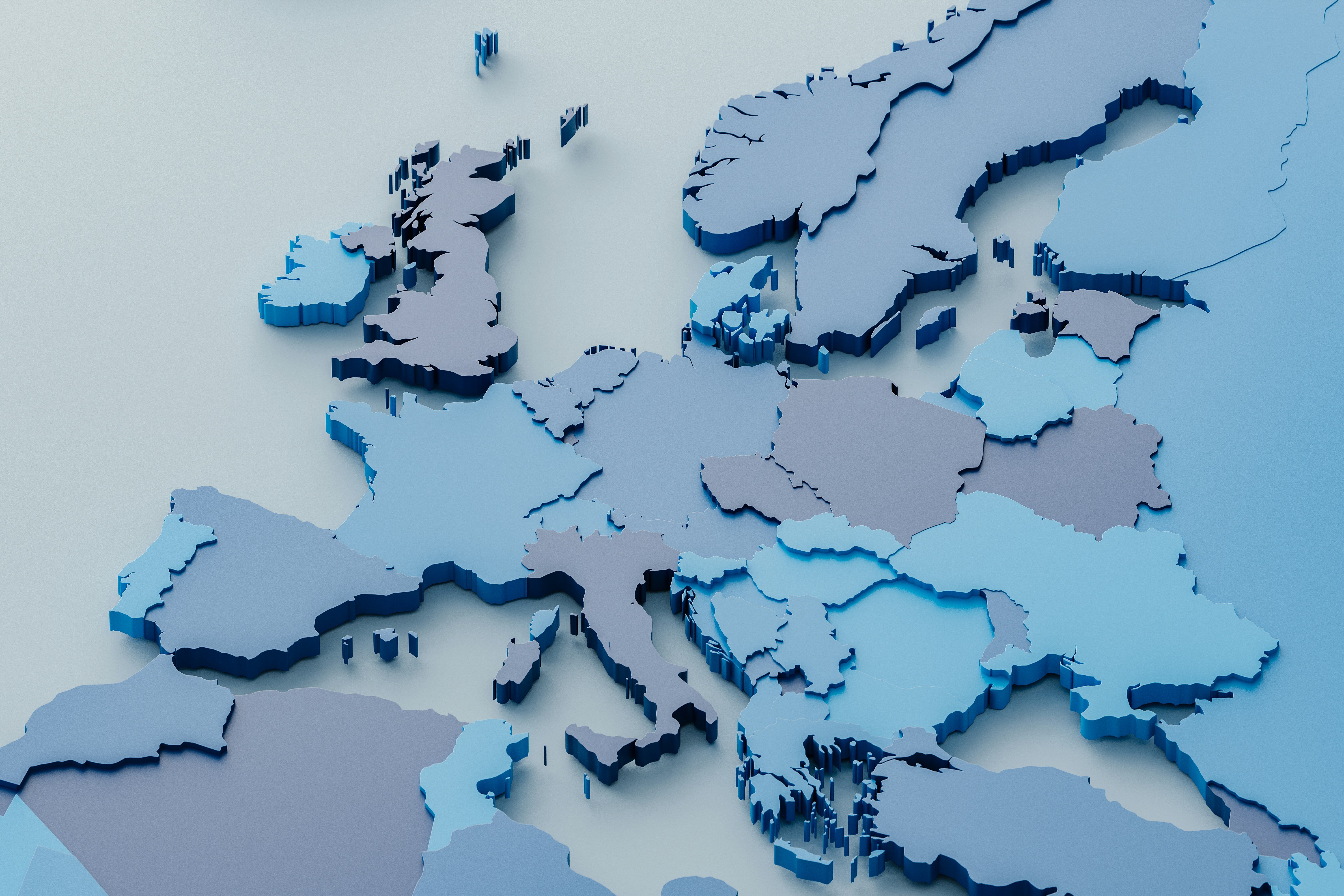Why EU Brands Should Work with EU-Based CDPs
by Melis Karabulut on 15.10.2024

Customer data has become an invaluable resource, and brands are racing to capture their share while respecting consumer preferences for anonymity on digital channels. Consumers are more and more privacy-oriented, and navigate on your digital channels as anonymously as possible. Now more than ever, your brand must orient its data collection and management strategy accordingly.
That begins with choosing the right customer data management platform to collect, map and orchestrate data with a compliance-first approach. For brands in the EU, it is very important to work with a Customer Data Platform (CDP) vendor based in the EU.
In three steps, let’s discover why.
1. GDPR Native – The Standard in Data Privacy
The GDPR (General Data Protection Regulation) is the global benchmark for privacy laws. While it directly impacts EU citizens, it has also influenced data privacy regulations around the world—from the California Consumer Privacy Act (CCPA) in the U.S. to similar legislation in countries like Brazil and Japan. In short, if you’re complying with the GDPR, you're likely on solid ground everywhere else too. (Remember when Amazon was fined 746M EUR in 2021 for GDPR non-compliance related to using targeted advertising without consumers’ consent?)
But the GDPR is more than a set of rules, it's about building trust. It gives consumers the right to control their data. They can ask you to correct, delete, or transfer their personal information whenever they want. When you use a CDP based in the EU, you get a platform designed with GDPR in mind. This ensures strong compliance right from the get-go.
Take for example the ability to ensure data minimization and storage limitation, key GDPR principles. EU-based CDPs allow companies to handle hashed data instead of raw, personally identifiable information (PII), and automatically delete expired data. This not only meets the GDPR’s high standards but also simplifies the process of staying compliant without sacrificing personalized experiences and data-driven insights.
2. Privacy by Design: Built-in Compliance
Under the GDPR, "Privacy by Design" (PbD) is a legal obligation. Article 25 of the regulation mandates that companies must integrate data protection principles from the very start of any system or process.
When you partner with an EU-based CDP, you’re choosing a platform that has PbD principles at its core. Many EU CDPs feature privacy-first architectures that ensure data minimization, access controls, and robust data governance. These are not add-ons; they are fundamental, baked-in functionalities designed to help your brand stay compliant from day one.
Here’s why this matters: it takes the stress out of compliance management. You don’t need to worry about adding privacy features later. They are already in place, protecting you from problems and fines. This lets you focus on creating better customer experiences and journeys, knowing your compliance house is in order.
3. Data Stays in the EU: Simplifying Compliance Post-Schrems II
Let’s talk about data transfers, but first, a quick history lesson: The 2020 Schrems II ruling by the European Court of Justice reshaped the landscape of international data processing. While it emphasized the potential for privacy violations when transferring data to non-EU countries like the U.S., the real impact went deeper.
Schrems II imposed new requirements for companies to assess the risks of foreign government access to personal data on a case-by-case basis. This means organizations must now evaluate the specific legal and surveillance frameworks of each country before transferring data, adding significant complexity and cost to compliance management.
This can happen unless strict new measures are in place. These measures include Data Transfer Impact Assessments (DTIAs) and Standard Contractual Clauses (SCCs). Long story short: it made life a lot harder for businesses relying on non-EU data processors.
When you work with an EU-based CDP, you dodge this bullet entirely. Data stays within the EU, making it easier for you to comply with regulations. This helps you avoid problems with cross-border transfers. You don’t need to worry about foreign data laws and the GDPR conflicting.
This means less paperwork and fewer risks. Hence, you can spend more time focusing on your brand’s growth. This is especially valid for industries like finance, healthcare, and e-commerce. In these fields, customer trust and data security are crucial. Keeping everything local, you ensure compliance with the GDPR without having to jump through additional hoops).
Example: Trust Built on Privacy
Imagine you’re an EU-based fashion retailer with a strong presence across several countries. You’ve partnered with a U.S.-based CDP. However, after Schrems II, you must complete DTIAs and adopt SCCs. Each of these steps adds complexity and cost.
Moreover, your customers are becoming more privacy-conscious, and their trust in you is beginning to waver due to the exposure of data to non-EU jurisdictions.
When you switch to an EU-based CDP, you regain control over your data. This also reassures your customers that their data is safely managed within the EU’s legal framework. You’ve essentially eliminated a potential PR and legal nightmare while strengthening customer loyalty.
A Few More Advantages of Choosing an EU-Based CDP
The reasons we have listed above are all about the orthodox reasons to choose an EU-based CDP for your marketing personalization. But, I know that European brands also care about these reasons when they are in the market for a software purchase (or any purchase in general!):
- Local Expertise & Cultural Fluency – Navigating EU regulations and markets requires a level of local expertise that a non-EU CDP might struggle to provide. EU-based CDPs understand the nuances of regional regulations, consumer preferences, and industry trends. They know the difference between the GDPR and the ePrivacy Directive, and they won’t get tripped up by rules in countries like Germany, which has its own local data protection quirks (hello, Landesdatenschutzgesetze!). This matters more than you might think. Imagine trying to create a hyper-personalized campaign targeting French consumers using a non-EU CDP that doesn’t fully grasp how sensitive Europeans are to data collection and privacy. It’s like trying to charm a room full of Parisians with a baguette made in Kentucky – it just won’t serve.
- Closer Relationships & Tailored Support – EU-based CDPs often offer localized support, making them more accessible and responsive. Time zones are aligned, and language barriers are reduced. Your marketing teams will get the level of personalized service that is usually better than what you get from a large global company. Plus, having a support team that gets your market and its unique challenges is invaluable.
- Eco-Friendly Data Centers – Here’s a reason that is a couple of steps further that’ll make your brand perform well on the E front of ESG. Many EU-based CDPs operate eco-friendly data centers that use renewable energy. With Europe’s strong commitment to environmental standards and green policies, choosing a local CDP might just be the cherry on top for brands looking to boost their eco-credentials.
Wrapping It Up: Why Risk It?
In a nutshell, working with EU-based CDPs offers great benefits: solid compliance with the GDPR, smoother operations with local expertise, and a stronger relationship with privacy-conscious consumers.
Play it smart, keep your data local, approach your customer database with more agility – and watch your brand’s reputation (and revenue) flourish. When it comes to data, it’s better to be safe (and compliant) than sorry.
Relay42 has created a platform that operates without the need for raw data and can function fully using only hashed data. Additionally, the principle of storage limitation is ensured and supported by the platform's ability to set data retention timelines; once these timelines expire, data is automatically deleted from the platform.
You May Also Like
These Related Stories

Google Analytics is Getting Banned in Europe - What’s Next?

Responsible Marketing: It’s Not Just Courtesy, in Europe it’s the Law
.jpg)

.png?width=786&height=265&name=Relay42%20Demo%20Banner%20(1).png)